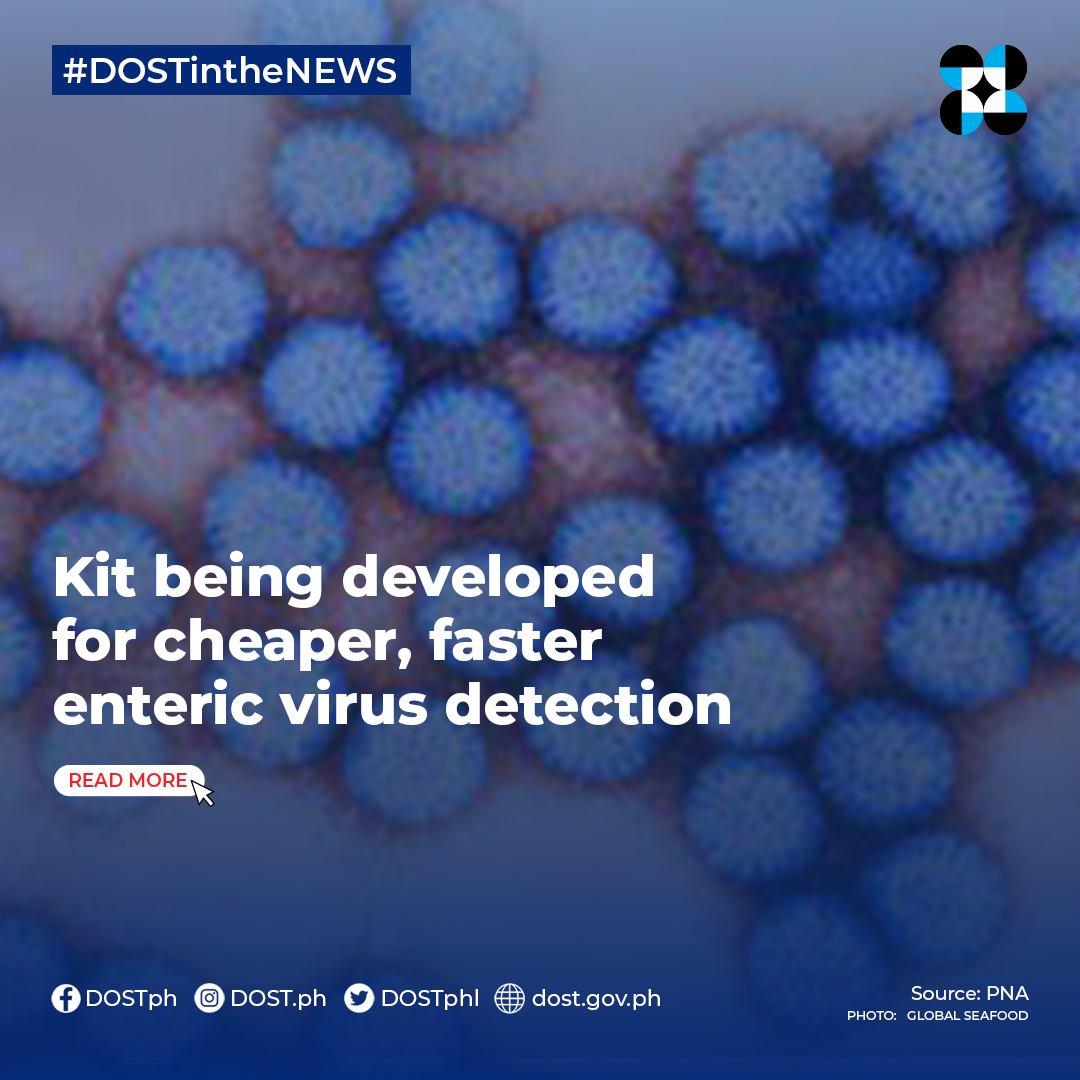#DOSTintheNEWS
"Researchers from the University of the Philippines-Natural Sciences Research Institute (UP NSRI) are currently developing a kit that could offer a cheaper and faster way to detect enteric viruses, commonly blamed for water and foodborne diseases like gastroenteritis.
"This could detect several types of enteric viruses, such as enterovirus, norovirus, astrovirus, just by getting one sample. As this could detect up to six kinds of viruses, the patients would no longer need to spend for several tests," project leader Joy Ann Santos said."
#DOSTApp #ScienceForThePeople #DOSTph#dostphilippines

MANILA -- Researchers from the University of the Philippines-Natural Sciences Research Institute (UP NSRI) are currently developing a kit that could offer a cheaper and faster way to detect enteric viruses, commonly blamed for water and foodborne diseases like gastroenteritis.
"This could detect several types of enteric viruses, such as enterovirus, norovirus, astrovirus, just by getting one sample. As this could detect up to six kinds of viruses, the patients would no longer need to spend for several tests," project leader Joy Ann Santos told the Philippine News Agency Friday afternoon.
She added that the kit, which is likely to be completed by August 2023, would be beneficial for both the patient and medical professionals since the results can be obtained in about an hour. "The technology does not require expensive equipment and long training to be implemented. Thus, diagnosis and treatment could begin immediately," she said.
Santos said that currently, no detection kit for all six enteric viruses (noroviruses, astroviruses, rotaviruses, hepatitis A, hepatitis E, and poliovirus) is available. "There are test kits available for each type of the virus, but these require different platforms, equipment and processes."
To detect the viruses using the kit, the nucleic acid will first have to be extracted after samples are collected.
"The nucleic acid will then be amplified, which requires only a single temperature of 37 to 42 degrees Celsius and can be completed in as little as 30 minutes. The product will be allowed to pass through the product Vertical Flow Microarray (VFM) paper. The paper microarray will be visualized after passing through the samples. The causative agent in the sample will then be identified," she said.
The project is still under development, but as soon as the primer sequences pass the statistical analysis, the researchers envision creating two multiplexable one-step RT-RPA kits that could each detect three enteric viruses.
In addition to that, a separate paper-based microarray will be produced to detect six enteric viruses in one device. The two technologies can be combined into a single product.
The product can be licensed into technology for commercialization through the Manila Healthtek Incorporation, Santos said.
The project was funded by the Philippine Council for Health Research and Development for PHP15.2 million
Meanwhile, Department of Science and Technology Secretary Fortunato de la Peña said these diagnostic kits will be helpful both in the detection of causative agents of the disease in patients and for detecting contamination in water sources.
"Diseases caused by contamination of water resources are a critical concern globally. Enteric viruses are one of the leading causes of acute diarrhea outbreaks in the Philippines, he said. (PNA)
Source: https://www.pna.gov.ph/articles/1176981?fbclid=IwAR38_gfjukhtcwNXqtBx7jKeHwTffLYO2rY21ZxFqB9i7HsHYrxQ2BuGqaU




